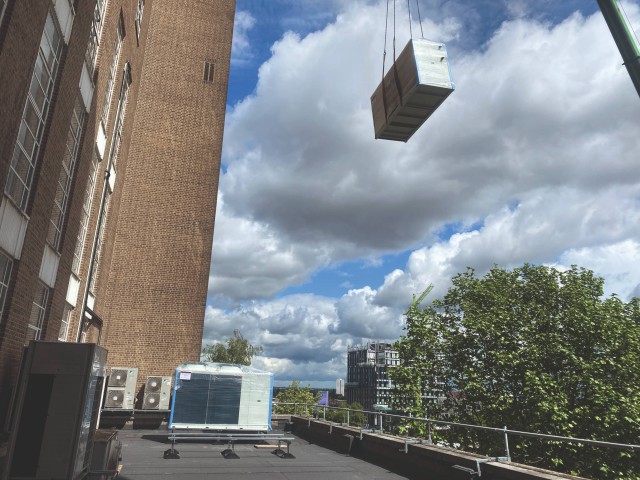Aston University turns to Lochinvar for low carbon hot water

Lochinvar heat pump technology is playing a key part in reducing the carbon emissions at one of England’s leading universities.
It has provided two Amicus high temperature (HT) air source heat pumps connected to three hot water storage vessels as part of a major upgrade of the domestic hot water system serving the main building of Aston University in Birmingham.
Founded in 1895, Aston became the UK’s first college of advanced technology in 1956 and has been a leading institution for practical learning ever since. Last year it announced a new strategy to focus more heavily on engineering, business, and health education – and this has been matched by an ambition to make its buildings good examples of low carbon engineering.
The university has already secured ISO 14001 and ISO 5001 certifications and was awarded Eco-campus Platinum status for its environmental and energy management systems. As part of its ongoing improvement programme, it has put Lochinvar’s heat pumps at the heart of a new low carbon system with the university expecting to save more than 20,000kg of CO2 annually as a result.
The heat pumps are a low carbon solution that allows the main building to operate independently of Aston’s existing district heating system and they produce flow temperatures up to 63oC.







